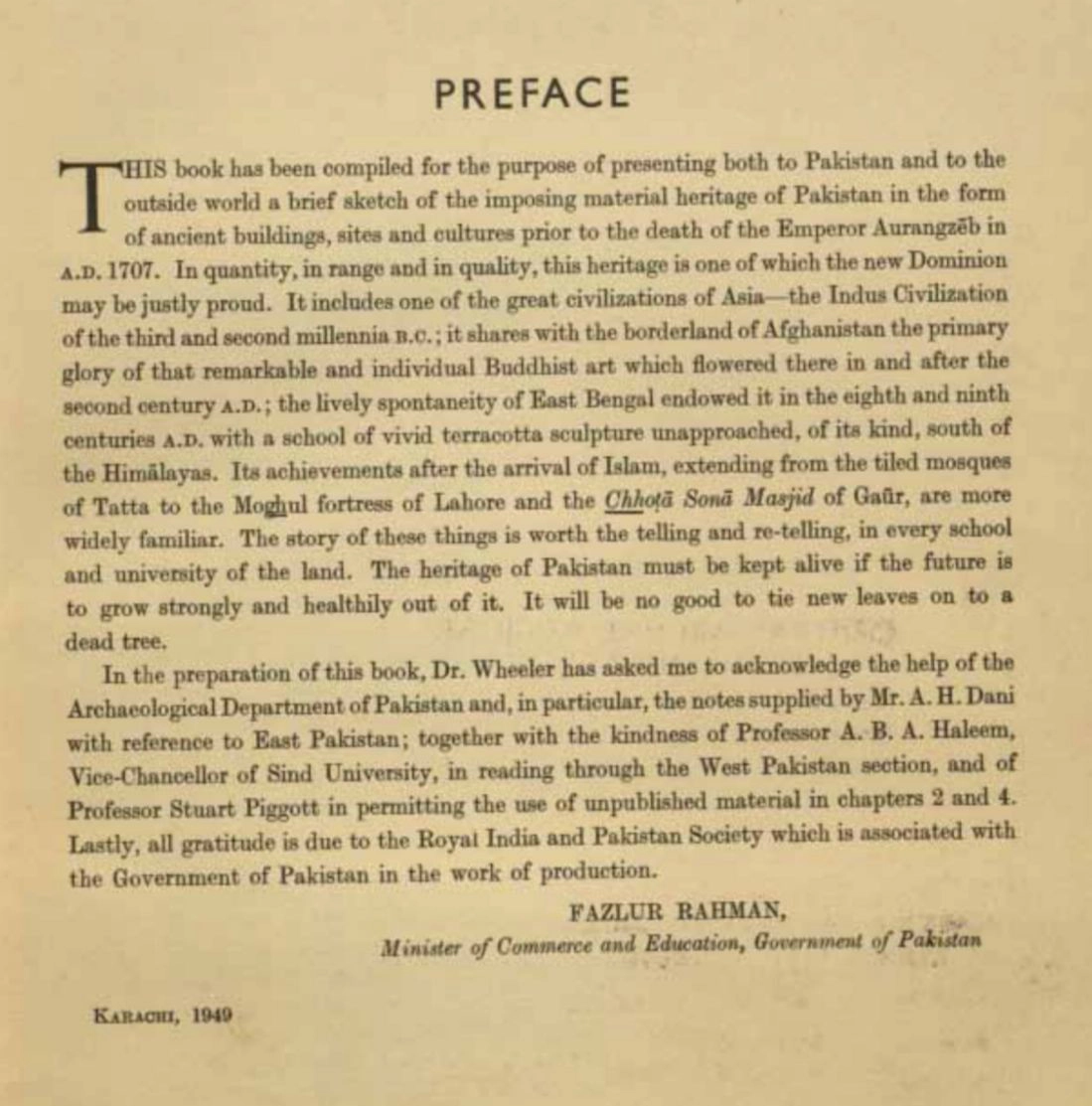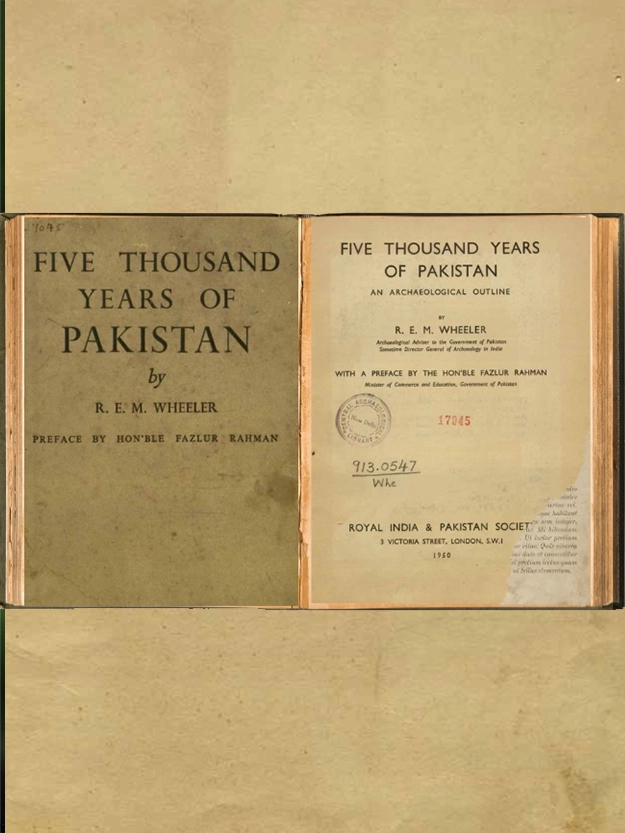Authored by R.E.M. Wheeler, this book was published by the ‘Royal India and Pakistan Society’, London, in 1950. Sir Robert Eric Mortimer Wheeler (1890 – 1976) has been termed as “the most famous British archaeologist of the 20th century.” He served as the Director of the London Museum, and the National Museum of Wales. He also served as Director General of the Archaeological Survey of (British) India.
Wheeler had particular fascination for the Indus Valley Civilisation. He was involved in the distribution of the ‘civilisational artefacts’ between Pakistan and India at the time of the Partition in 1947.
This book on the five thousand years of the land which constitutes Pakistan today, is considered as one of the best sources of information on Harappa and Mohenjodaro.
Other books by R.E.M. Wheeler include: ‘Roman Art and Architecture’ published in 1964; ‘Still Digging’ which came out in 1955; and his 1954 publication ‘ Archaeology from the Earth.’

“Five Thousand Years of Pakistan” remains a valuable starting point for anyone interested in the ancient heritage of Pakistan. While it reflects the limitations of mid-20th-century scholarship, Wheeler’s work laid the groundwork for future archaeological research in the region.
Originally published in the mid-20th century, this book offers a sweeping survey of the region’s historical development, from prehistoric times to the early Islamic period. Wheeler, a renowned British archaeologist, draws on his experiences directing excavations in South Asia, particularly in Mohenjo-Daro and Taxila, to craft a narrative that reveals Pakistan’s deep historical roots.
One of the book’s central themes is continuity—how different cultures and civilizations arose, flourished, and interacted with each other within the geographical space that is now Pakistan. Wheeler also emphasizes the importance of trade and cultural exchange, highlighting Pakistan’s role in ancient global networks. Through his discussions, Wheeler subtly promotes the idea that history is cumulative, with each period building upon the legacies of the previous ones.
Sir Mortimer Wheeler’s writing is clear, engaging, and accessible, making complex archaeological concepts easy for general readers to understand. His personal experiences add a unique touch, immersing readers in the excitement of discovery. Wheeler’s vivid descriptions of ancient sites like Mohenjo-Daro and Taxila are particularly captivating, bringing these historical cities to life.






